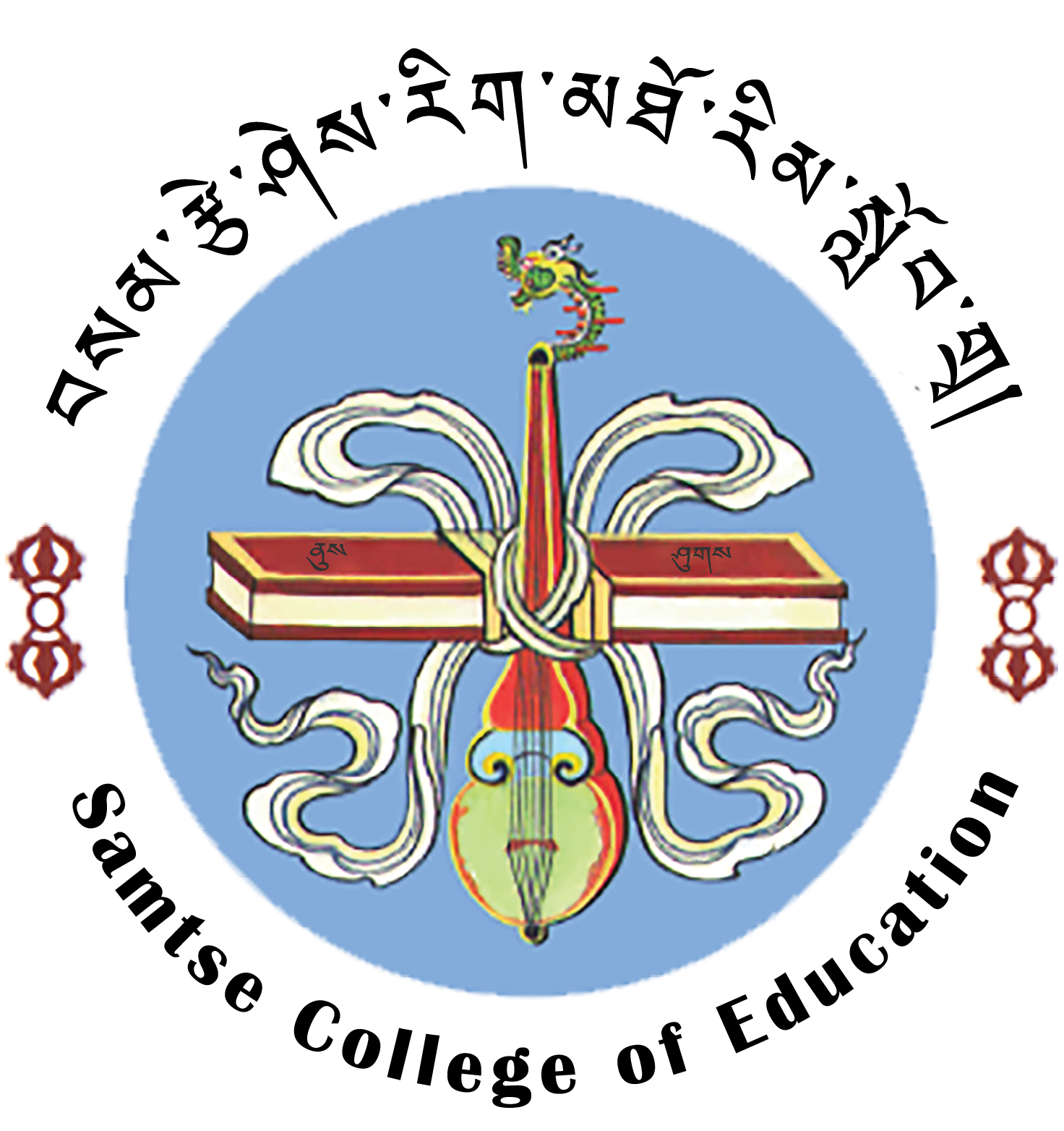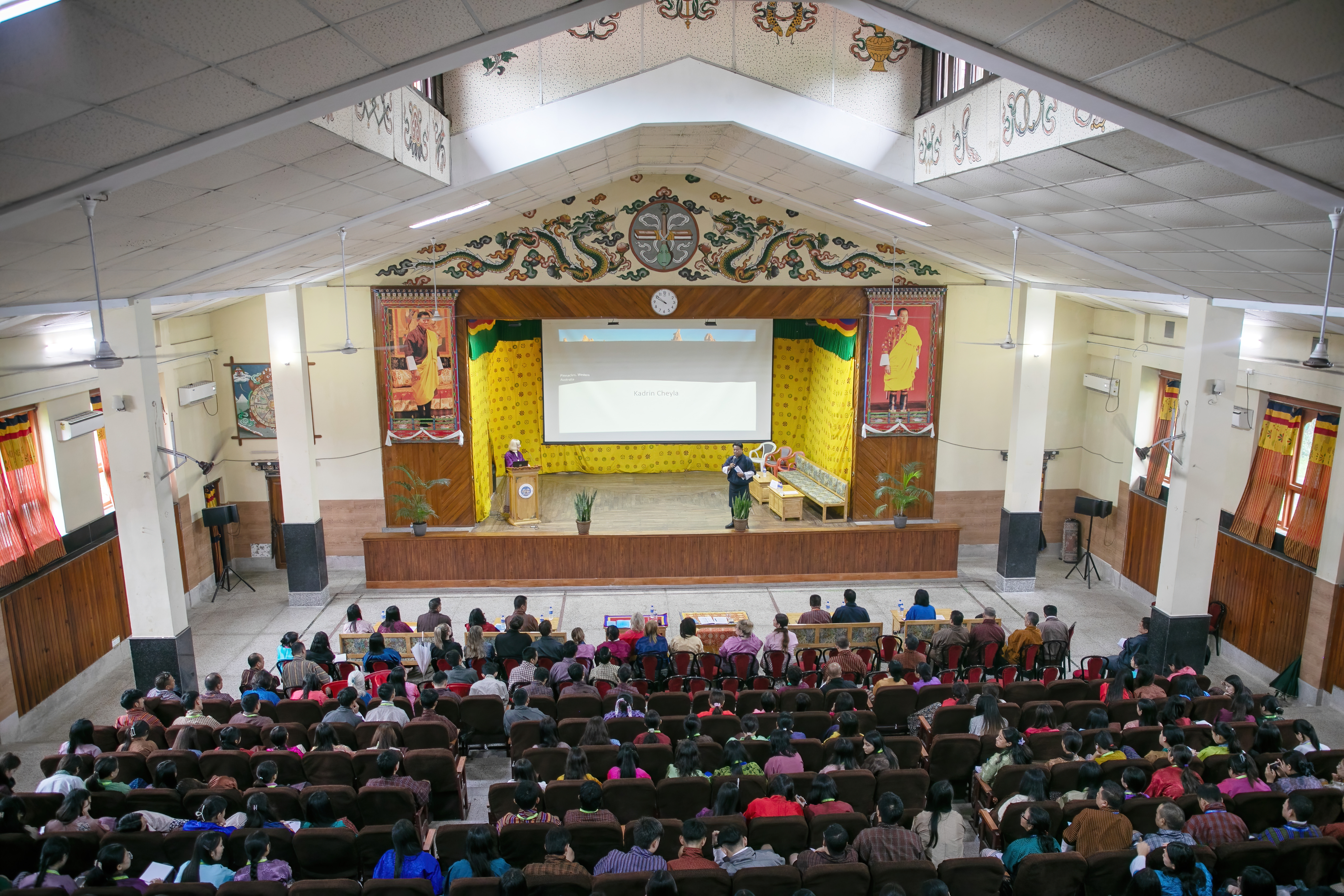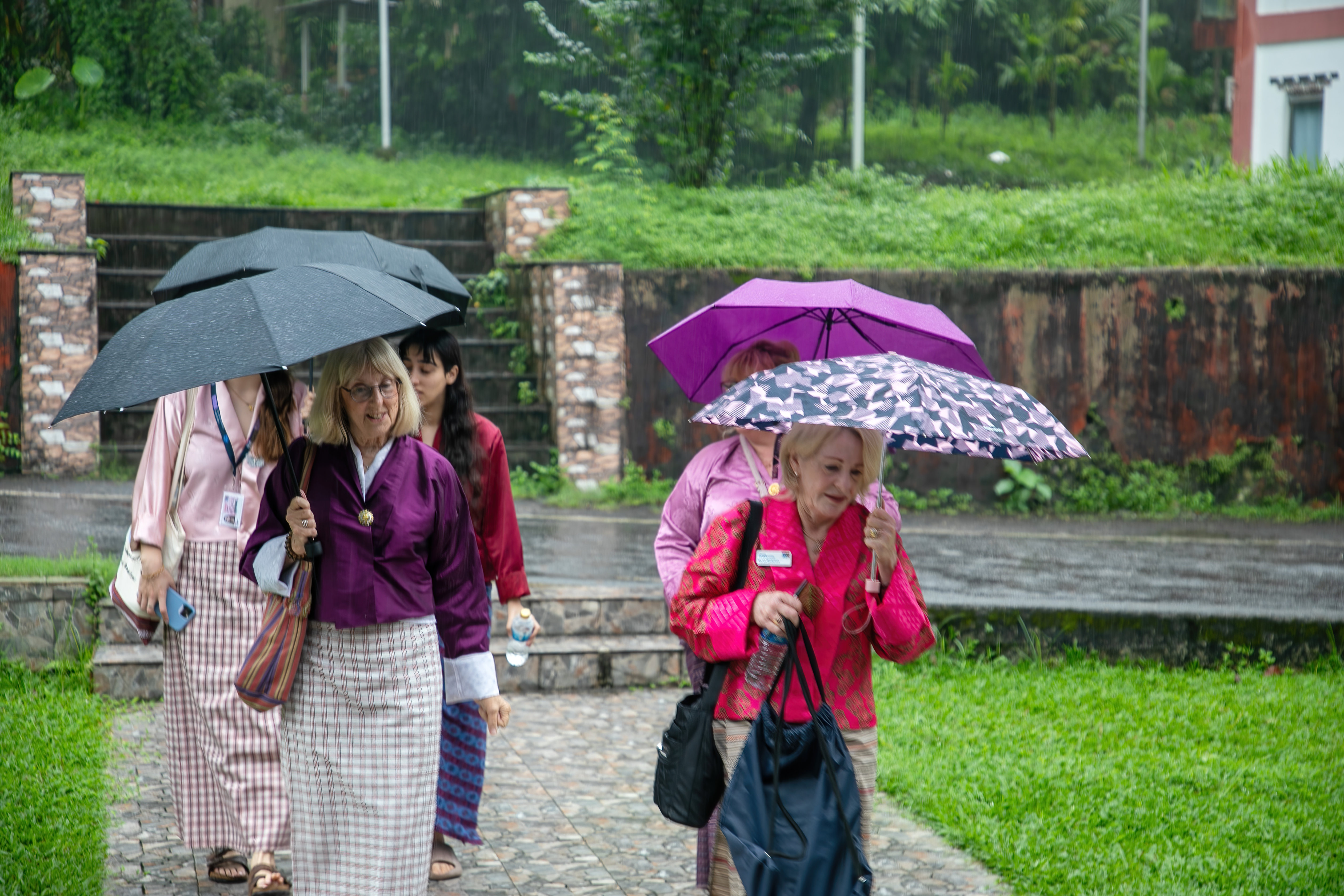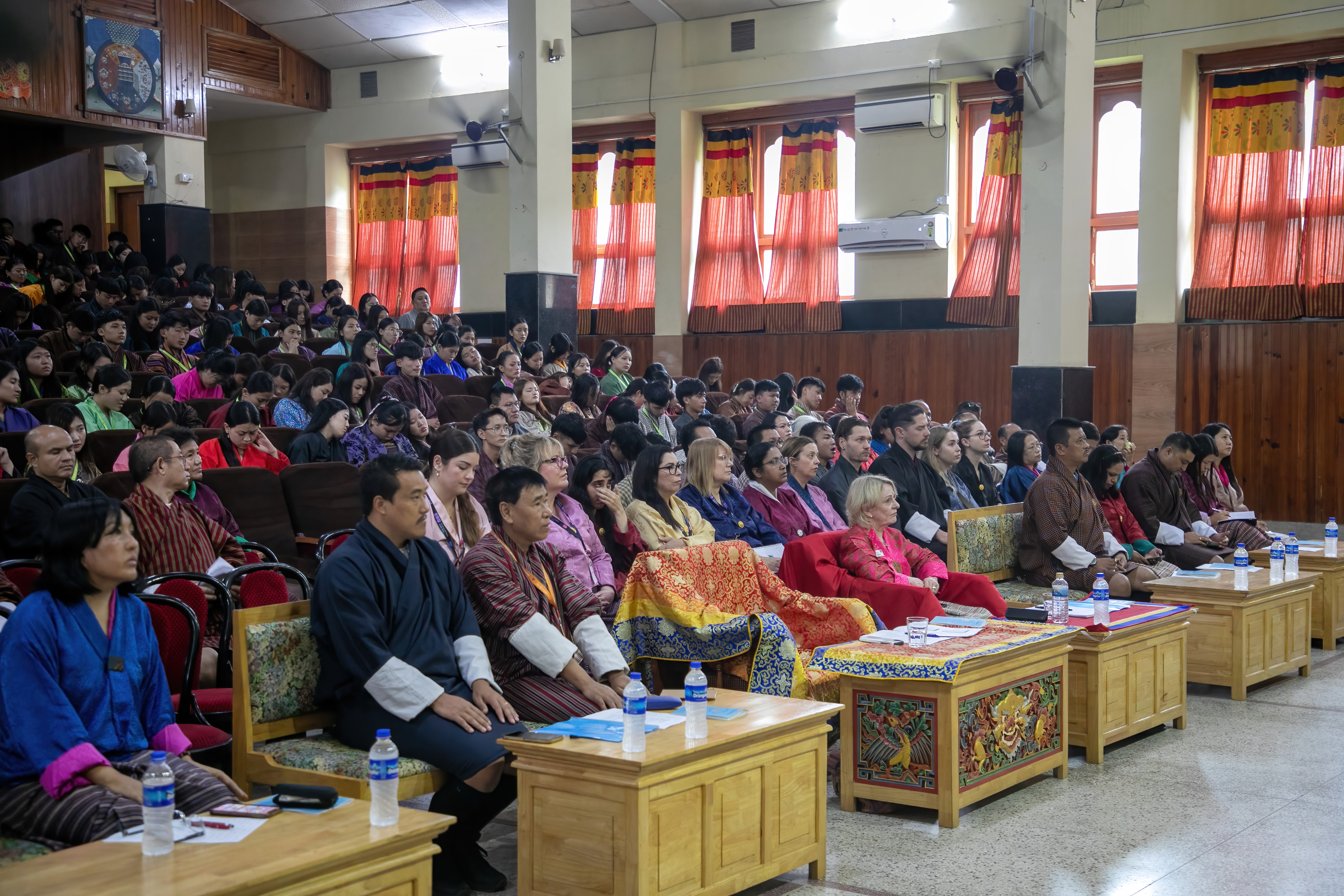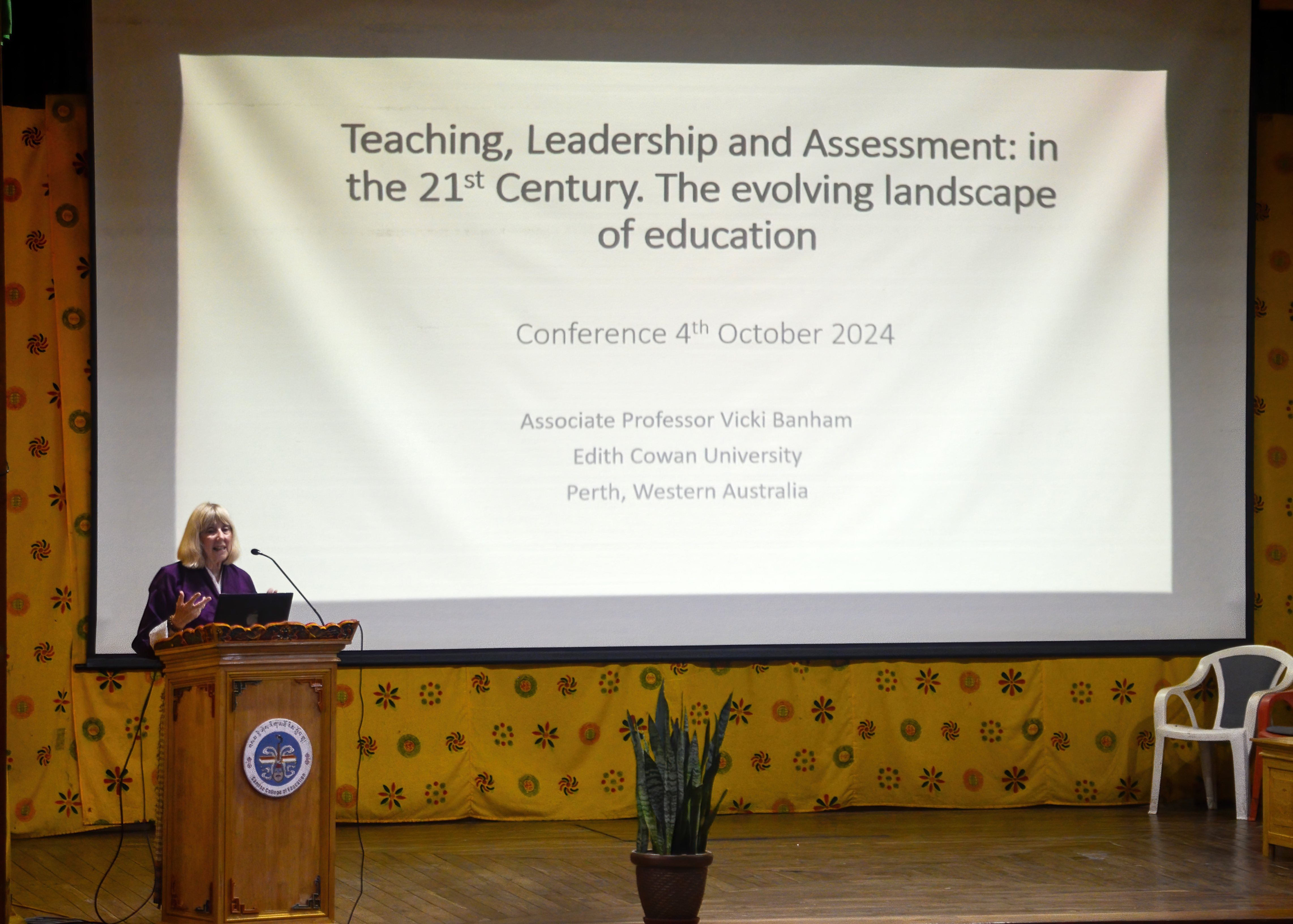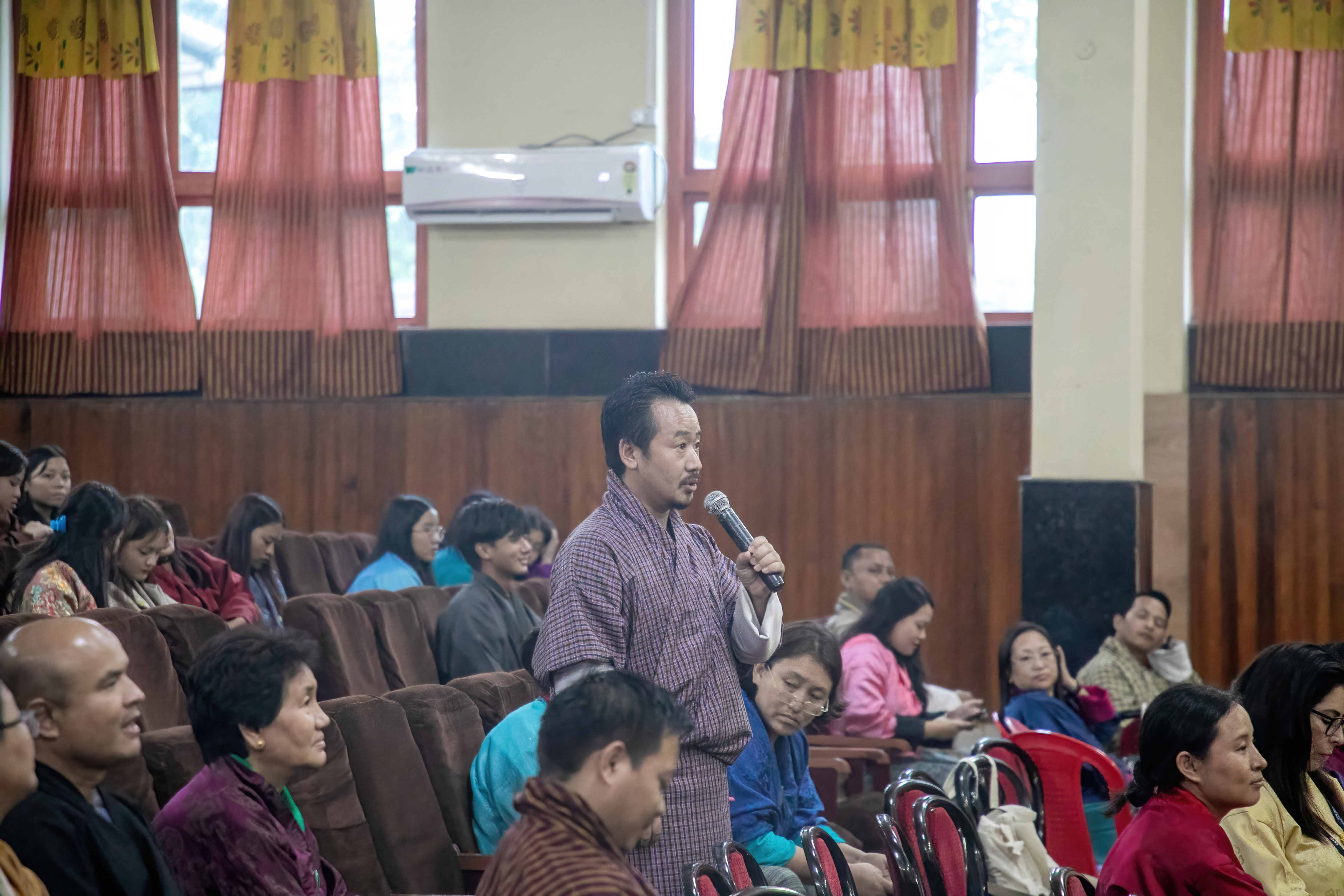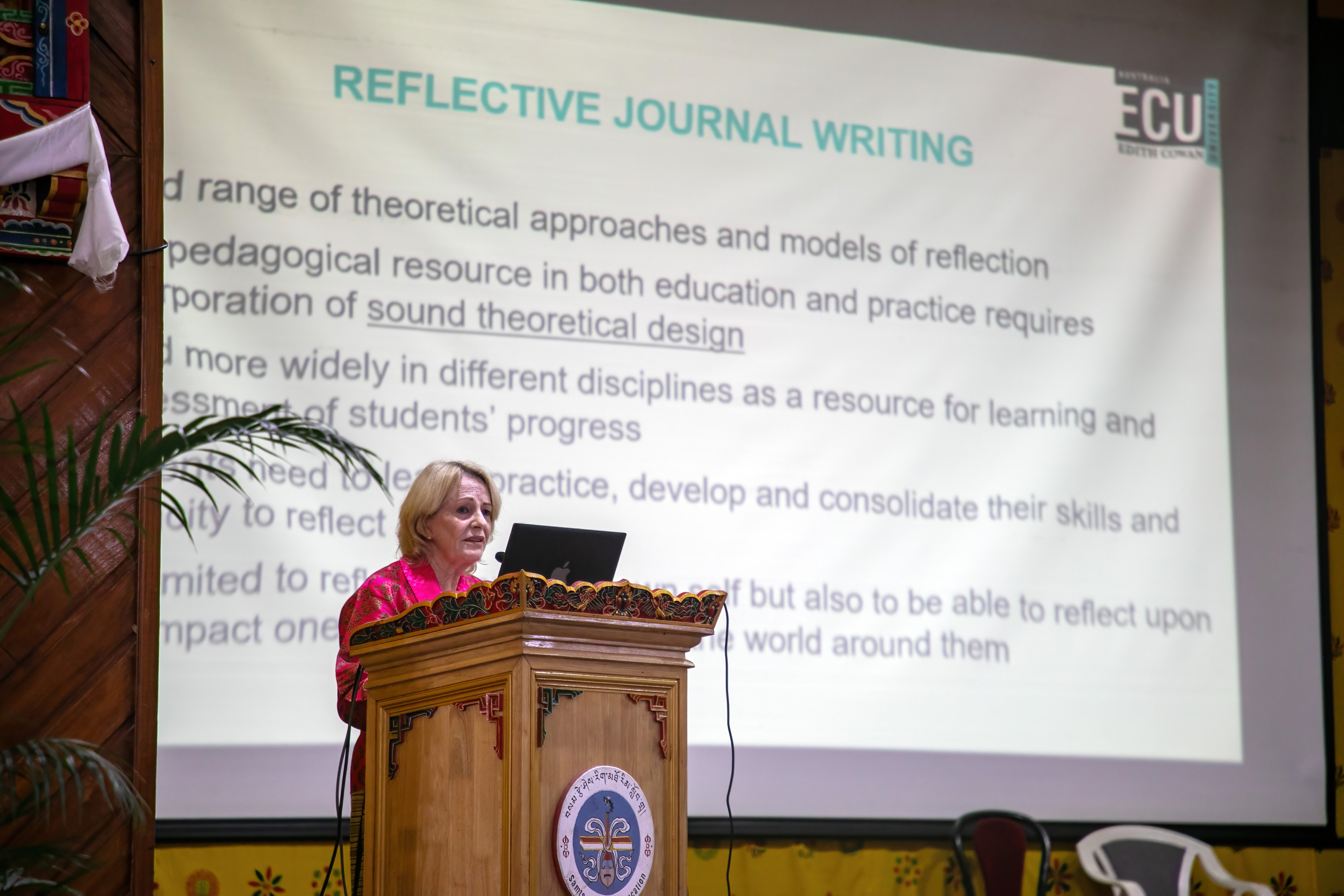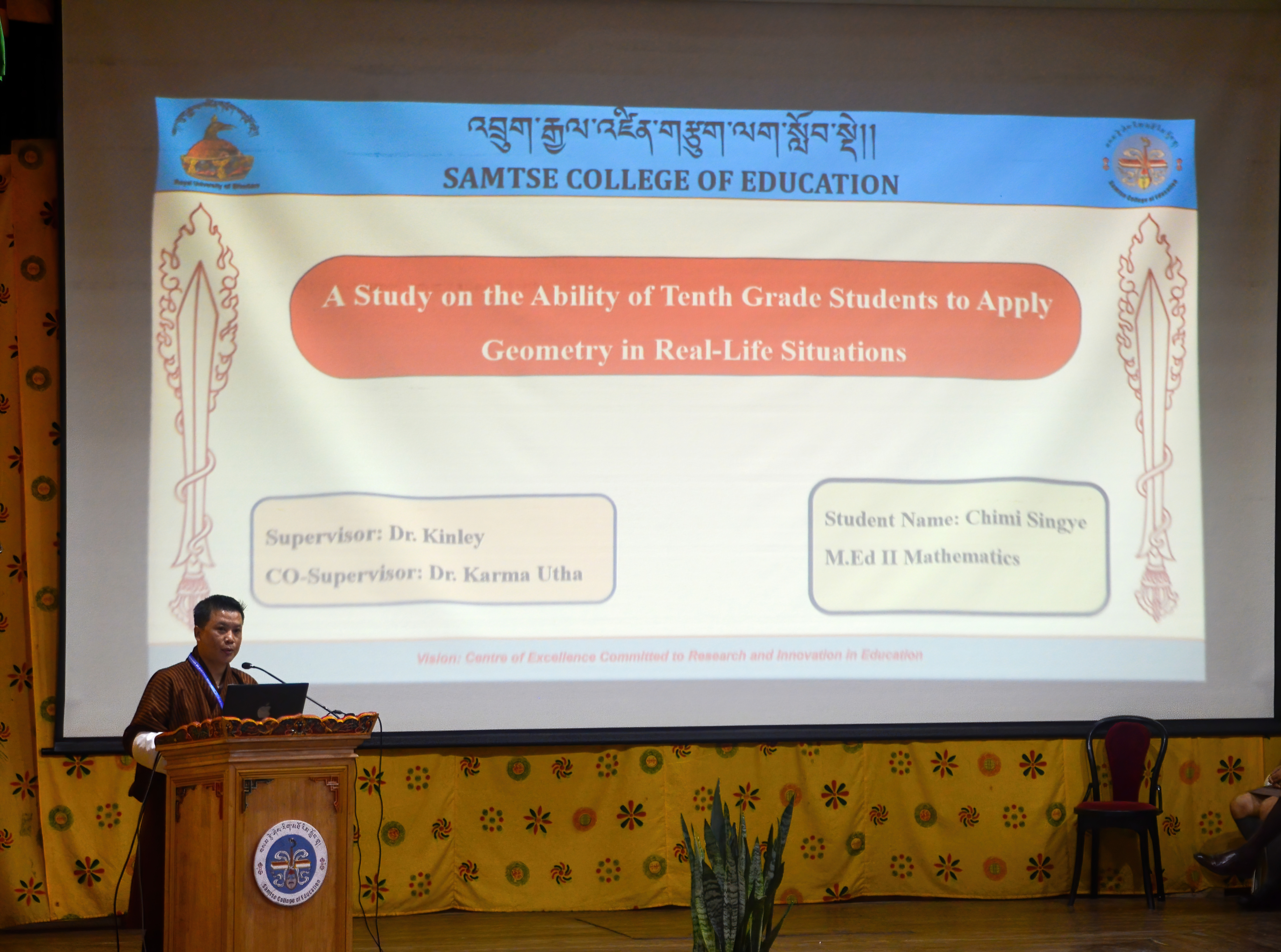Samtse College Hosts 12th Faculty-Student Research Convention on 21st Century Education Pedagogy
On October 4th, Samtse College of Education (SCE) hosted its 12th Faculty-Student Research Convention at the Namgay Khangzang, focusing on the theme, “Teaching, Learning, and Assessment: The Evolving Landscape of Education in the 21st Century.” The event brought together faculty and students from SCE, alongside presenters from Samtse Higher Secondary School and MEd students from SCE, fostering rich discussions on contemporary educational practices.
The convention kicked off at 8:40 a.m. with the national anthem, followed by an opening remark from Dr. Kinley Selden, The Dean of Research and Industrial Linkage at SCE. In her opening remark, Dr. Kinley Seden, Dean of Research and Industrial Linkages, emphasised the significance of such seminars, stating that they are not just for generating knowledge but for making an impact. She noted that even small breakthroughs have the potential to shape the future. The President of SCE highlighted the event’s historical significance in bridging faculty research with student engagement.
The convention featured 13 paper presentations and two keynote addresses. Dr. Prof. Karen Benham, the guest of honour, in her keynote address, highlighted the importance of “signature pedagogy,” urging educators to develop distinct teaching approaches that enhance classroom practices.
Throughout the day, presenters explored a wide range of topics, including transformative pedagogy, assessment strategies, and the use of AI tools in education. The participation of MEd students and presenters from Samtse Higher Secondary School added depth to the discussions, offering valuable insights into modern teaching practices and emphasising the importance of adapting to evolving educational challenges.
The convention concluded with an awards ceremony recognizing outstanding contributions, with Ms. Tshering Om Tamang awarded Best Presenter for her research titled “Exploring the Integration of Gen AI Tools in Teaching, Learning, and Assessment in the Colleges of Royal University of Bhutan: Students’ Perspectives on Potential Benefits and Challenges.” The day wrapped up with a heartfelt vote of thanks from the organisers, expressing appreciation to all who contributed to the event’s success.
This convention not only served as a platform for sharing innovative research but also reinforced the vital role of collaboration among faculty, students, and secondary school educators in shaping the future of education.
